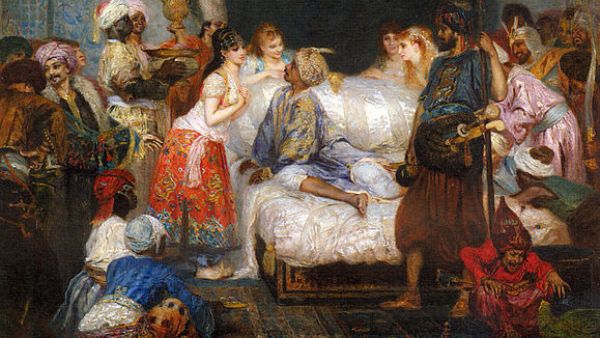The Guardian reported on Sunday that a “taboo-busting sex guide” is offering “advice to Muslim women seeking fulfilling love lives”.
We say: if The Guardian is going to write articles on sex for website hits, can they at least do it properly?
Here are a few ways in which The Guardian got it wrong:
“Taboo-busting sex guide offers advice to Muslim women seeking fulfilling love live”
How many times do Muslim women have to talk about sex for it to stop being “taboo-busting”?
In 2003, Dr Heba Kotb qualified as ‘the first licensed sexologist’ in Egypt and the Arab world, according to her website.
Kotb has published four books on sexual relationships, and hosts The Big Talk, a weekly sexual advice show broadcast in Egypt, but well-known throughout the region.
Thinking it is probably very tame and uninformative? Well, here she is discussing premature ejaculation:
The pioneering sex therapist says she draws inspiration from the Qur’an.
"I found out that the foreplay was there in Koran," she told ABC news in 2007. "The female orgasm was there in Koran, and the discharge was in Koran."
“Published last week, The Muslimah Sex Manual: A Halal Guide to Mind Blowing Sex is the first such guide written by a Muslim woman.”
No, it is not.
In 2009, an Emirati marriage counsellor Wedad Lootah received intense criticism for publishing a sex guide entitled “Top Secret: Sexual Guidance for Married Couples.” That, despite it gaining the blessing of the Mufti of the Emirates.
It is not even the first publication on the subject by a Muslim-American woman. Controversial Muslim activist Asra Nomani has written an “Islamic Bill of Rights for Women in the Bedroom” to, as she puts it, “uphold women’s right to pleasure.”
“The core message [of the book is] that Muslim women can and should enjoy a varied sex life and take the lead in physical relationships.”
The assumption here is that they do not already enjoy a varied sex life, or take the lead in intimacy.
It might fit with the narrative of passive Muslim women to suggest that they are not in control, even in the bedroom. But it seems to have little basis in fact.
Writing in 2013 in The Telegraph, British Muslim writer (and author of “Love in a Headscarf - Muslim Woman Seeks the One”) Shelina Janmohamed described that “I see the pattern often repeated of Muslim women leading their male counterparts in the discussion about sexuality and intimacy.”
Meanwhile, the same report described a Netherlands-based online shop selling “halal” sex toys aimed at Muslims
Abdelaziz Aouragh who runs the company said that “the majority of our customers are women.”
It seems there is plenty of evidence of women taking the lead, then.
“Islamically, there’s an emphasis on enjoying physical relationships within the context of marriage"
Yeah - but since when have young people respected what they’re supposed to do?
The Guardian’s writers might be surprised to learn that the Muslim world has Tinder (and extramarital sex) too!
Well, they shouldn’t be: in 2015 the paper reported that the app associated with casual sex was “taking off in Tehran.”
“The author has chosen to stay anonymous, using an alias.”
(The fact that “she is an American-born psychology graduate,” appears in the second to last paragraph, a throwaway comment.)
This is too convenient.
There are approximately 1.5 billion Muslims in the world - that is at least 750 million Muslim women - living across Africa, Asia, Europe and the Americas, in cities, towns and villages. They live incredibly diverse lives and they have manifold experiences of sex and relationships.
So, where this woman is from, how old she is, her background are all important for individualizing her and her understanding of Muslim women’s sexuality, which is inevitably not representative of all Muslim women.
“Some critics have accused the author of fetishising Muslim women”
No, The Guardian, that’s you.
Sex sells and exoticized Muslim sex sells even more.
In choosing to publish on this topic, the left-leaning British newspaper is exploiting a stereotyped and fetishized understanding of Muslim women for link clicks from Western liberals with a savior complex.
Muslim women have long been burdened with the paradox of at once being exoticized and hyper-sexualized by Western men, and of being painted as innocents, helpless to the barbarism of Muslim men.
Part of this comes from the fact that sex in much of the Muslim world, including the Middle East, is strictly limited to behind closed doors, while in the West it is often openly and unapologetically discussed in public.
But that does not mean it is any better or worse. And to obsess with what goes on “inside the hareem” with women whose veils Western narratives have been made out to represent both the mysterious seductress and the oppressed innocent, is to march out a tired, colonial narrative.
Thank goodness Muslim women have The Guardian.







